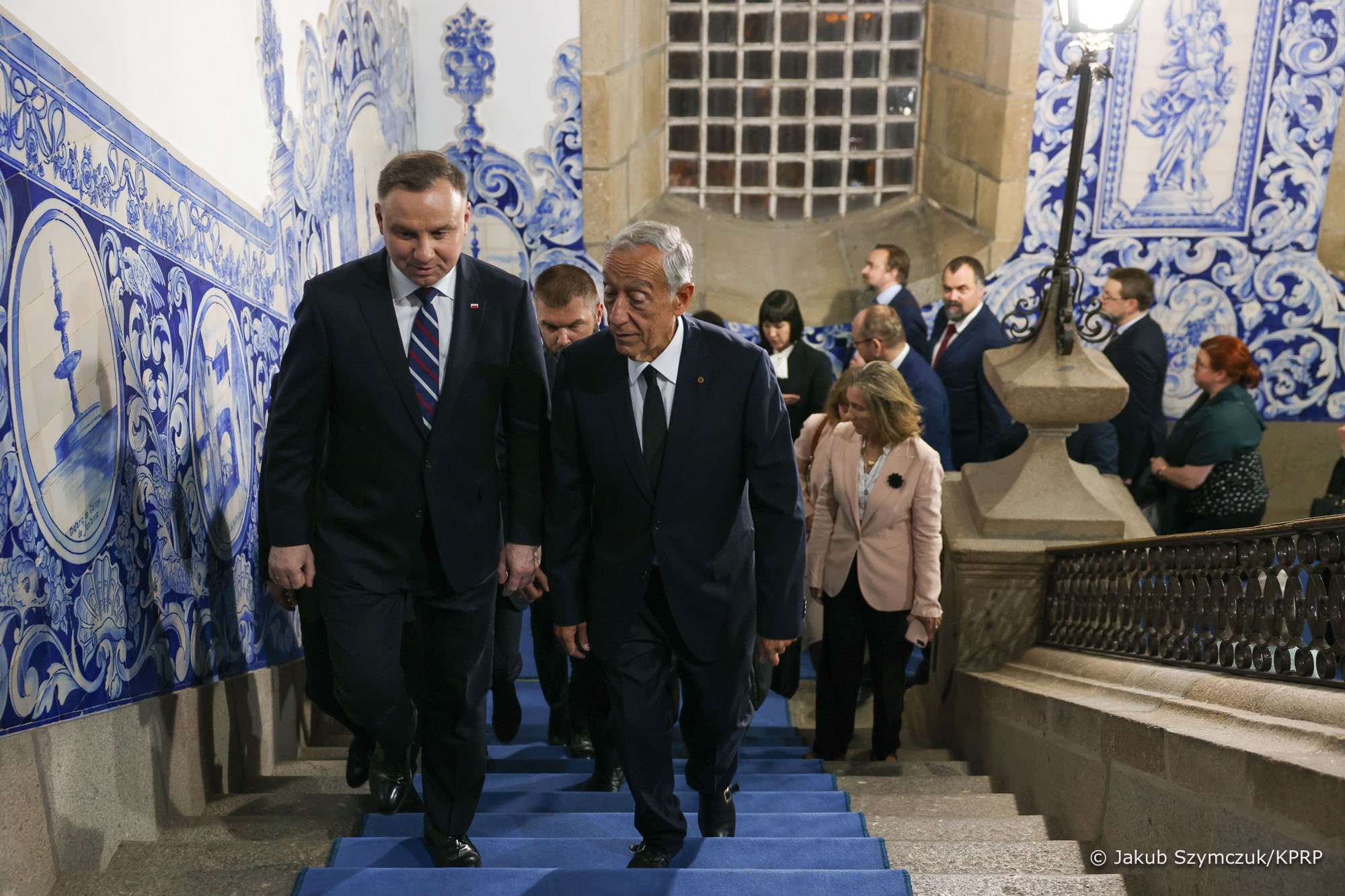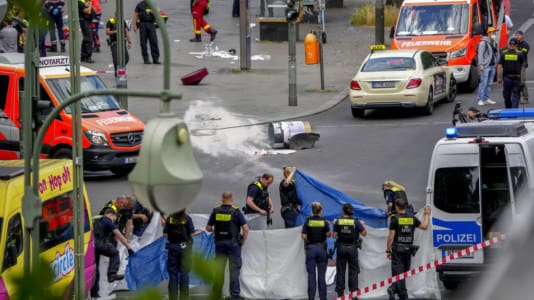Polish President Andrzej Duda is visiting Portugal and Italy to convince the two countries to grant EU candidate status to Ukraine.
On Wednesday evening, Duda met Portuguese President Marcelo Rebelo de Sousa, where they discussed the situation in Ukraine and the potential of offering Ukraine candidate status for accession to the EU.
Originally, the Polish president was to travel to Portugal and Italy together with Slovak President Zuzana Čaputová; however, the head of the presidential International Policy Bureau, Jakub Kumoch, stated on Twitter on Wednesday evening that Čaputová was diagnosed with Covid-19 and had to cancel her travel plans.
Kumoch added that the visit to Portugal and Italy “was part of a campaign for Ukraine, which both of the presidents announced during their recent meeting in Bratislava.” He added that both countries, Poland and Slovakia, supported by Estonia, Lithuania, and Latvia, want to convince Europe that Ukraine deserves candidate status.
“Poland and Slovakia are among the most committed friends of Ukraine in the EU,” stated Kumoch.
The next stop for the Polish president will be Italy today, where he is to meet with Italian President Sergio Mattarella. On Friday, Duda will travel from Italy to Romania to attend the summit of the Bucharest 9. Founded by Poland and Romania in 2015, its members are countries situated on NATO’s eastern flank: Poland, Romania, Hungary, Czechia, Slovakia, Lithuania, Latvia, Estonia, and Bulgaria. Secretary General of NATO Jens Stoltenberg will also attend the summit.
Duda announced that the goal of the summit in Bucharest is to prepare a joint stance of the countries in the region for the NATO summit taking place at the end of June in Madrid. He pointed out the need to change the character of NATO’s presence in the region.
“Today, there is an Enhanced Forward Presence, but it should be an Enhanced Forward Defense, and it should be considerably increased, in terms of the number of NATO troops present on our territories as well as NATO infrastructure,” said Duda in late April. He pointed out that “area denial weapons,” meaning both anti-missile and anti-aircraft systems, should be provided.





